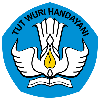Pengukuran Usability Pada E-Learning Politeknik Negeri Jakarta
Keywords:
Covid 19, E-learning, usability, USE, Skala LikertAbstract
Covid-19 has impacted human activities around the world, including education. Teachingandlearning activities that were originally conducted face-to-face have turned into remote teaching andlearning activities or online lectures. To support the government's ef orts to prevent Covid-19 fromspreading further, the Jakarta State Polytechnic conducts its lectures using PNJ's E-learning media. Learning media systems can be considered reliable if they can fulfill user needs, such as the ease of usingtools in E-learning. E learning must be able to be used in both theoretical and practical subjects. Theresearch targets for this study are graphic engineering, packaging printing industry technology, mechanical engineering, building construction, and energy conversion. However, these practical learningcompetencies cannot be achieved as conducted on the of line lecture. To ensure that the teaching andlearning activities using PNJ E-learning can run ef ectively, we need to measure its usability. In this study, we use USE questionnaire tool as usability measurement. The research conducted on 150 respondents showed that the level of usability in PNJ e-learning was 0,609 this figure is included in the category of goodusability level. However, this value is still within the minimun score criteria for the good category. TheValue for each variable, namely the uselfulness variable of 71.4%, the easy of use variable of 72.8%, theeasy of learning variable of 48.25% and the satisfaction of 51.2% of the long distance learning process. theory and practice using E-learning,. E-learning system's components that are improved are thebigbluebutton, attendance, login, additional notification features for student assignments, and attendance.
Downloads
References
WHO.2020. WHO Corona virus Disease (COVID-19) Dashboard. Di akses di http://covid19.who.int/t/table pada tanggal 27 November2020.
Ihsanudin, 2020. Kerja dari rumah belajar dari rumah, ibadah dari rumah, ibadah dari rumah diakses di http://nasional.kompas.com/read/2020/03/16/15454571/jokowi-kerja-dari-rumah-belajar-darirumah-ibadah-di-rumah-perlu digencarkan pada tanggal 20 November 2020
Palupi, 2020. Penggunaan Uselearn sebagai metode Evaluasi Usability untuk E-learning. Jurnal Teknik Industri UMM, Vol 15 No 2 tahun 2014.
Ali, 2016. Evaluasi Heuristik Pada Web Based Learning Untuk Meningkatkan Aspek Usability System. Jurnal Insand Comtech, vol 1, No 1, Mei 2016.
Oztekin, A., Kong, Z.J., and Uysal. 2010.Uselearn : A Novel Checklist andUsabilityMethod for learning Systemby critical metricAnalysis. International Journal of IndustrialErgonomics, 40, 455-469
Chiew, T.K & Salim, S.S. 2003. Webuse:Website Usability Evaluation Tools. MalaysianJournal of Computer Science 6(1), pp.45-57
Marthasari, G. I., &Hayatin, N. (2017).Analisis Usability Terhadap SistemLectiveGegulang Berbasis Use Questionnaire.
Sugiono. 2010. Metode PenelitianKualitatifdan RND. ALFABETA
Umar, Husein., Metode PenelitianBisnised., 2000. Gramedia. Jakarta
Nielsen, J., 2013. Usability Engineering, Boston : Academic Press Professional
Downloads
Published
How to Cite
Issue
Section
License
Copyright (c) 2022 Prosiding Seminar Nasional Teknoka

This work is licensed under a Creative Commons Attribution-NonCommercial-ShareAlike 4.0 International License.






 Supported by :
Supported by :



